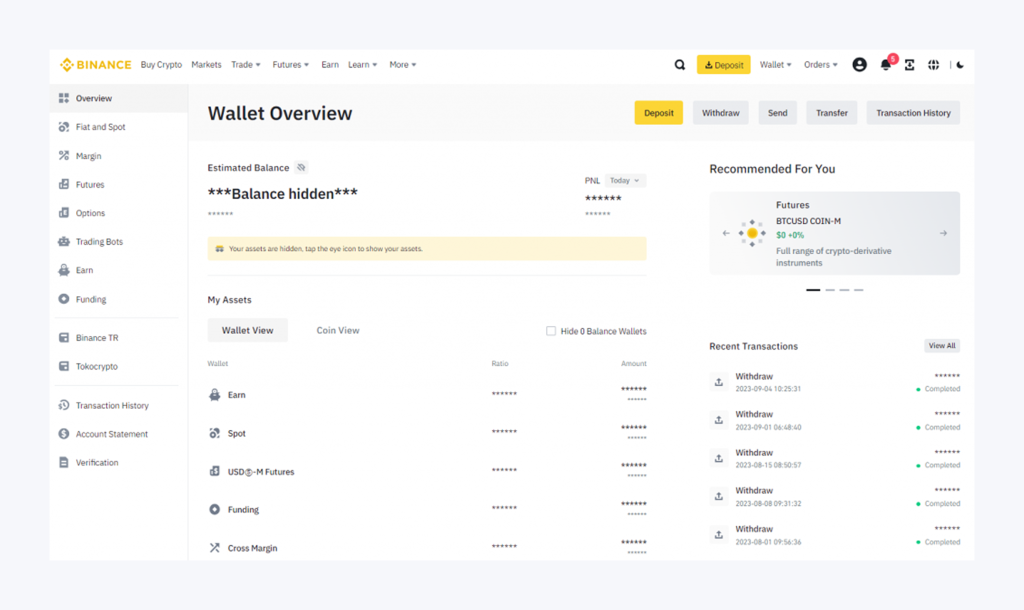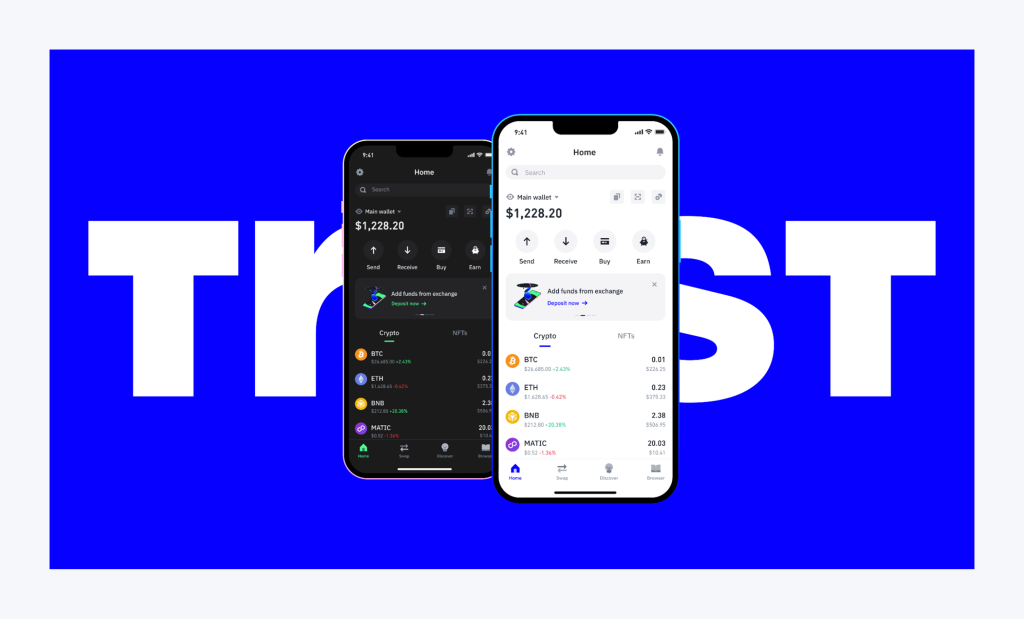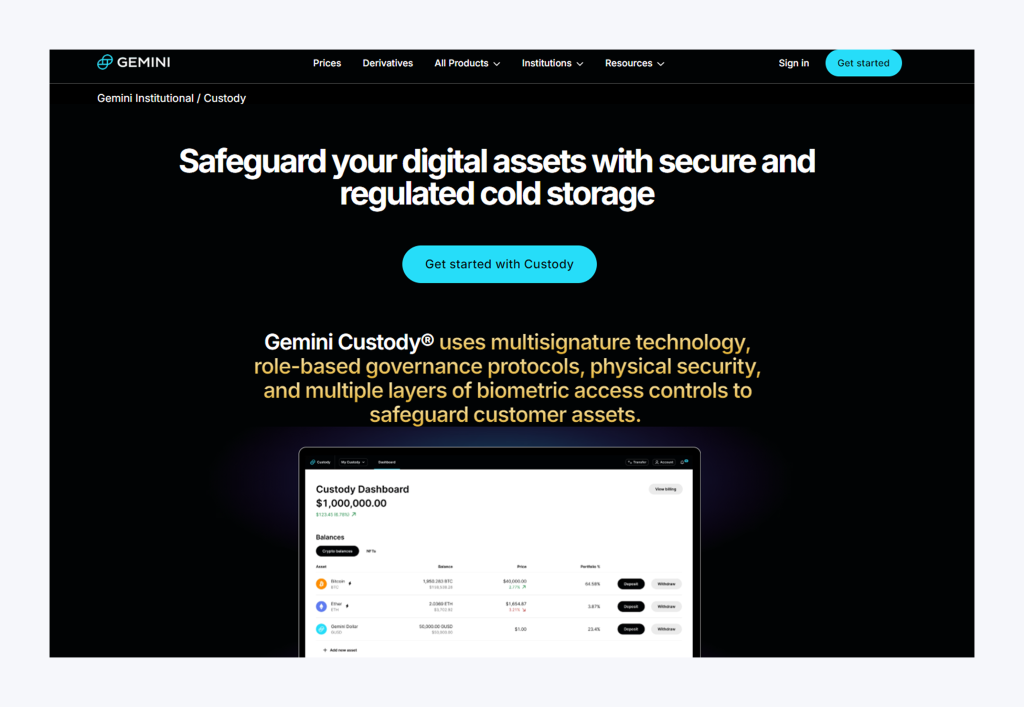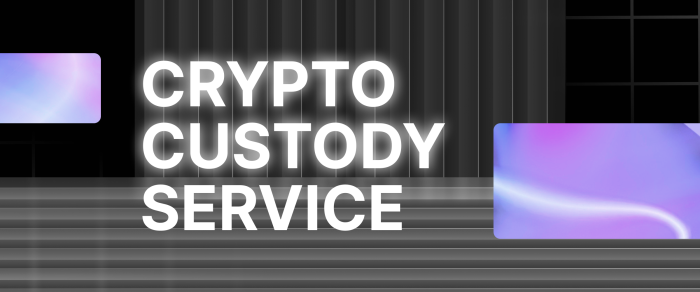How Crypto Custody Service Works — And Who Really Needs It
In 2024, nearly 1 in 5 institutional investors held digital assets in their portfolios—a number that’s growing as crypto moves deeper into the financial mainstream. With billions of digital value changing hands daily, how do you protect all that crypto? Crypto custody services could be the answer.
In this article, we’ll break down what a crypto custody service is, how it works, who needs it, and what to consider when choosing the right solution for your needs.
Key Takeaways:
- Custodial services manage private keys and reduce the complexity of crypto storage.
- Security and compliance are primary reasons for institutions to use professional custody.
- Non-custodial methods offer full control but demand greater responsibility from users.
- The right solution depends on your technical skills, investment size, and risk tolerance.
What Is a Crypto Custody Service?
When we talk about custodian services for crypto, we refer to third-party entities that hold private keys or otherwise manage access to a user’s cryptocurrency.
These companies or websites work like traditional banks or brokerage houses that hold stocks and bonds on behalf of their customers. But instead of paper certificates or fiat currency, they handle assets in custody in electronic form.
A custodian for cryptocurrency can work for individual investors or larger institutions with added security, regulatory adherence, insurance coverage, and around-the-clock assistance. These services are critical to institutional players working with high volumes of cryptocurrency and must meet strict operating and legal requirements.
Why Crypto Custody Matters
With the increasing mainstream adoption of cryptocurrencies, the demand for crypto custody solutions has skyrocketed. Retail investors need straightforward tools to store coins safely, while businesses require specialized setups that integrate seamlessly into larger trading or payment systems.
Moreover, crypto-friendly regulations in certain regions have paved the way for businesses to expand their offerings, thus amplifying the need for robust crypto custody services.
Safety is the principal goal. Even experienced users can lose funds due to human error, phishing attempts, or more advanced cyberattacks. By using crypto custodial services, the risk of such mishaps diminishes. The custodians often employ cold storage (offline wallets), multi-signature protocols, and insurance policies to mitigate potential losses.
Types of Crypto Custodial Services
There are two main approaches to handling digital assets:
- Custodial Wallets
In a custodial wallet, the third-party crypto custody provider holds the private keys on your behalf. This model is widely used by cryptocurrency exchanges and specialized custodian services for crypto. It offers ease of use, quick transactions, and recovery options, making it a popular choice among beginners and active traders.

- Non-Custodial Wallets
In this model, users hold their own private keys and are fully responsible for the security of their assets. While this offers complete control, it also places the burden of managing complex security practices on the user. Wallets like MetaMask and Trust Wallet fall into this category.

Advantages of a Custodial Setup
Opting for a custodial arrangement can simplify many day-to-day hassles of managing digital currencies. For instance, beginners often find it intimidating to handle private keys without the support of a third party. Custodial services not only manage the technical aspects but also reduce the risk of irreversible mistakes.
Furthermore, many crypto custody solutions integrate additional features like staking, lending, or specialized trading interfaces. This streamlines the process for businesses or retail investors who want a one-stop shop for all their crypto needs. In many cases, custodial platforms may also collaborate with insurance providers, guaranteeing a safety net if security breaches occur.
Potential Drawbacks
Despite their benefits, custodian services for crypto are not without challenges. One concern is the reduced level of control. When you entrust a custodian with your private keys, you rely on their integrity, technical setup, and security protocols. If a breach occurs on their end, it can affect multiple users at once.
Another issue is regulatory oversight. Laws differ by country, and authorities can sometimes request a freeze or confiscation of assets in custody held by certain custodians. This is particularly relevant for users in regions where crypto regulations are not fully developed or are subject to frequent changes.
Who Benefits Most from Crypto Custody
The appeal of using a cryptocurrency custodian can span various kinds of users, from newcomers to seasoned professionals. Beginners may appreciate the user-friendliness and support that custodial services provide, ensuring that losing a password is not the end of the road for their funds. Frequent traders also benefit since many custodians are linked to major exchanges. This makes it faster to carry out trades without having to move funds between external wallets.
Institutional investors—hedge funds, corporate treasuries, and other large-scale players—often require specialized crypto custodial services to comply with local and international regulations. These custodians may offer detailed reporting features, added insurance, and multi-signature protection to meet the rigorous demands of high-volume investors.
How to Choose a Reliable Crypto Custody Service
Selecting the right crypto custody providers can be overwhelming, but focusing on several key aspects helps narrow it down:
Reputation and Track Record
Investigate how long the custodian has operated and whether they’ve experienced any security breaches. Reputable names have extensive histories, although newer specialized firms can also be robust if they leverage cutting-edge technology.
Security Practices
Look for services that employ multi-signature wallets, cold storage, and end-to-end encryption. Some custodians go the extra mile with offline vaults in guarded facilities, minimizing the risk of hacks.
Regulatory Compliance
Depending on your jurisdiction, compliance can be a deal-breaker. Legitimate custodians often hold licenses or charters to handle digital assets under financial regulations. This ensures a certain level of accountability and consumer protection.
Insurance Coverage
While not all custodians offer insurance, it’s increasingly common to see policies that cover cybersecurity incidents. This is crucial when storing large assets in custody, as it provides an additional safeguard against the unexpected.
Well-Known Crypto Custody Service Providers
Crypto exchanges like Gemini, Coinbase, and Kraken have their own custody solutions. These platforms are popular because users can trade and store their crypto in one place, simplifying transactions for those who move coins frequently.

Dedicated custodians such as Xapo and BitGo specialize in providing robust security measures to protect digital assets. They often cater to professional traders, funds, and institutional clients. Many of these services go beyond simple storage and offer extended functionalities like multi-user account management, advanced authorization procedures, and compliance support for organizations.
Alternative Approaches to Custody
While custodial services are convenient, some users and businesses prefer alternative methods:
- Hardware Wallets: Physical devices like Ledger and Trezor store private keys offline. This approach is extremely secure but demands personal responsibility for backups and maintenance.
- Software Wallets: Wallets like MetaMask or Trust Wallet keep private keys on the user’s own device. These are free and straightforward, but more vulnerable to device theft or malware if not properly secured.
- Paper Wallets: This old-school method involves printing out private keys on paper. It’s completely offline but easily lost or damaged if not stored correctly.
These non-custodial methods may appeal more to individuals who value autonomy and want to avoid depending on a third party.
Conclusion
Secure storage becomes more important as the use of cryptocurrencies increases. Beyond safety, a quality crypto custody solution may lower risks, facilitate compliance, and streamline operations. Because traders, investors, and businesses all have distinct demands, the best solution will rely on how much convenience and control you want.
Even while some users will always choose self-custody, professional services are constantly improving and now include features like sophisticated security, staking, and insurance. The objective is straightforward: keep your assets secure and accessible at all times.
FAQ:
Are crypto custody services safe to use?
Yes. Reputable crypto custody providers often employ stringent security measures like multi-signature wallets, cold storage, and insurance policies to protect your assets. Always do thorough research on each provider’s track record and technology before entrusting them with your funds.
Which banks offer crypto custody?
Several global banks, including Standard Chartered, BBVA, and BNY Mellon, now offer crypto custody services. Over 50 banks in Europe alone provide some form of crypto-related service. Besides that, analysts forecast that the world’s largest banks will start offering crypto custody in 2025.
How much does crypto custody cost?
Crypto custody fees vary by provider and typically include a setup fee, an annual or monthly storage fee, and transaction fees. Costs can depend on the volume of assets and the level of service required. Some custodians also offer additional features like insurance, which may increase the price.
How do I take self-custody of crypto?
Self-custody means managing your own private keys using wallets like MetaMask, Ledger, or Trust Wallet. Depending on your security preference, you can choose from hardware wallets, software wallets, or paper wallets. It’s essential to back up your seed phrase securely, as losing it means losing access to your crypto.



